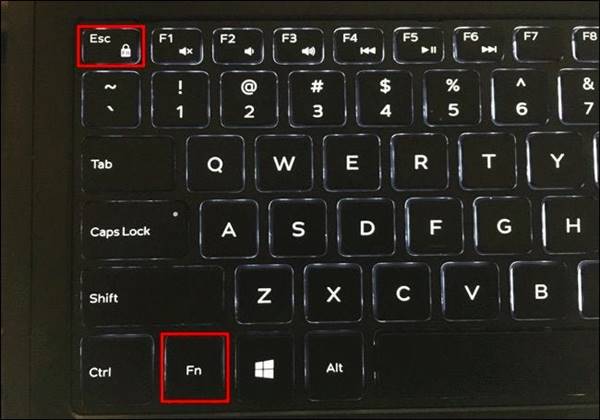The function key is not only limited to laptops; it’s also available on Bluetooth keyboards. However, the functionality of the Fn key might vary depending on the keyboard brand.
Function (Fn) Key on Keyboard
It will perform basic stuff if you only press the F1, F2, and F3 keys on your keyboard. For example, selecting a folder and pressing the F2 button will allow you to rename it. Similarly, pressing the F5 key will refresh the desktop. Modern laptops and keyboards now have a dedicated Function (Fn) key that temporarily gives you access to special features and disables the original functionality of function keys such as F1, F2, and F12 keys. For example, pressing the F2 key along with the Fn key will open the email service rather than renaming a file. Similarly, pressing the Fn+F5 key together will open the music player instead of refreshing a window. The settings & features might vary depending on your laptop brand.
Steps to use Function Keys Without Pressing Fn (Windows 10/11)
If you don’t want to press the double keys (Fn key + F1, Fn Key + F2) and want to work with actual function keys, you need to disable the special feature your laptop or keyboard offers. Below, we have shared a detailed guide on using Function keys without pressing the FN key on Windows 10/11. Let’s check out.
1. Turn on the Fn Lock Key
If your Windows Laptop or keyboard has an FN lock key, you need to use a specific keyboard shortcut. The Fn Lock key is the quickest way to disable the Function (Fn) key on Windows 10. If you disable the Fn key on your keyboard, the function keys (F1, F2, F3) will perform standard functions instead of using the special features.
Look at your keyboard and find a dedicated ‘Fn Lock’ key. The key would have a lock symbol with an FN written over it. If your Windows 10/11 laptop or keyboard has a dedicated FN lock key, press the Fn key + Fn Lock key to disable the special functions. Once disabled, you can use the Function keys’ default features like F1, F2, F2, F4, and so on without pressing the Fn keys.
2. Make Changes to the UEFI or BIOS settings
If your laptop manufacturer offered you a keyboard manager app to enable/disable the Fn key, you don’t need to implement this method. However, if there’s no option to disable the function key features, you need to make some changes to the BIOS or UEFI settings.
First of all, you need to enter your computer’s BIOS settings. For that, restart your PC, and before the logo screen comes, press the F2 or F10 button. This will open the BIOS settings. Please note that the shortcut to open BIOS settings might differ depending on the manufacturers. Some might need to press the ESC button to enter the BIOS settings; in some cases, it might be the F9 or F12 buttons. Once you enter the BIOS settings, move to the Advanced tab and select the function key behavior. Set ‘Function key’ under the Function key behavior. Important: Please be careful while making changes in the BIOS or UEFI settings. Any wrong setting could mess up your computer/laptop. Please make sure to backup your essential files before playing with the BIOS settings on a computer. That’s it! You are done. This is how you can use Function keys without pressing the FN key on Windows 10. If you have any doubts about this, let us know in the comment box below.
Δ





